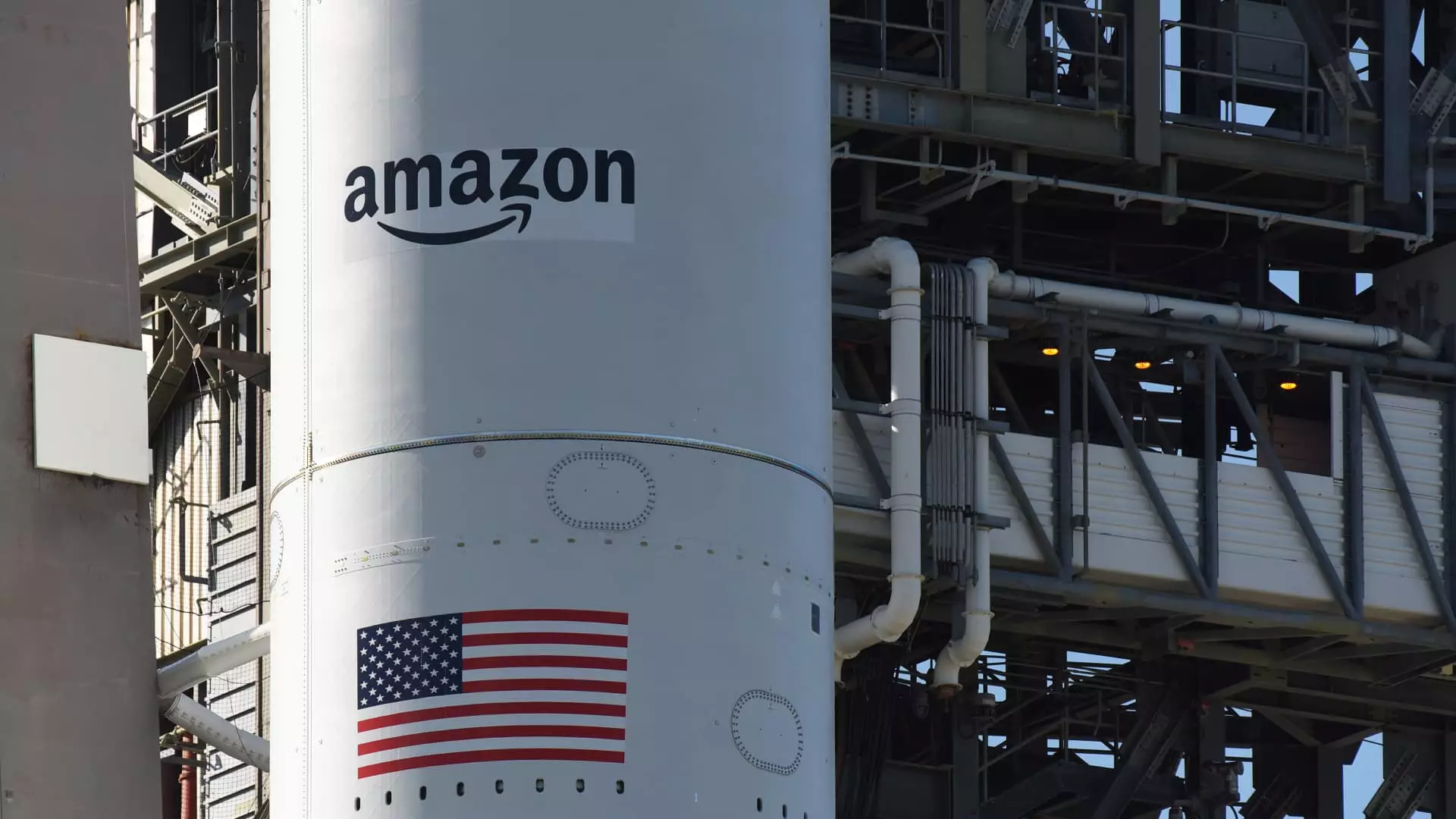It is disheartening to witness yet another setback for Amazon as its highly anticipated Kuiper internet satellites were delayed due to “stubborn cumulus clouds” and challenging wind conditions. The United Launch Alliance, tasked with delivering this essential payload, had to make the tough call to halt operations, emphasizing how uncontrollable weather can derail even the most meticulously planned missions. While it may seem trivial in the broader spectrum, this delay raises critical questions about Amazon’s preparedness and ability to navigate unforeseen challenges. Did they underestimate the complexity of launching in Florida’s notoriously unpredictable climate, or are there deeper systemic issues at play?
Racing Against Time and Competition
Amazon’s aspirations are anything but modest. Announced six years ago as a venture to establish a formidable internet satellite constellation in low Earth orbit, the project aims to break into a market already dominated by SpaceX’s Starlink. With more than 8,000 satellites enveloping our planet, the task ahead of Amazon is monumental. The looming deadline set by the Federal Communications Commission does little to ease the pressure: by July 2026, the company must have at least half of its planned 3,236 satellites launched. This urgency can lead to rushed decisions that compromise the integrity of the project. With time running out and the stakes rising, one can’t help but wonder whether Amazon’s expansion is propelled by ambition alone, rather than a scalable, well-thought-out strategy.
The Space Race: More Than Just Numbers
Beyond merely launching satellites, this venture symbolizes a deeper ideological battle for the future of internet access worldwide. Amazon’s Kuiper project aims to provide high-speed, low-latency internet not just to consumers but also to corporations and governments—a stark contrast to the more commercial focus of Starlink. The vital question here is whether competitive zeal will foster genuine innovation or simply lead to a chaotic race where quality, service, and user experience take a backseat.
As more private entities leap into this fray, the landscape of space commerce stands to get crowded, and the differentiation between providers could hinge less on technology and more on ethical considerations. Can Amazon, a company that often draws criticism for worker treatment and monopolistic tendencies, deliver a service that reflects a commitment to ethical standards and accessibility? Or will they merely mirror the aggressive, corporate ethos seen in so many modern enterprises?
The Bigger Picture: Policy and Power Dynamics
Additionally, the interplay of politics and technology cannot go unnoticed. Elon Musk’s rise in influence, now positioned as an advisor within the federal government, illustrates a worrisome trend where commercial interests begin to bleed into public policy. The line between private ambition and governmental support is becoming increasingly blurred. Should Amazon succeed in its goals, how will this transform its relationship with regulatory bodies and the general public? Will it pave the path for a corporate-led future, or will consumers genuinely benefit from this digital revolution?
In essence, every launch delay is a reflection of broader societal and technological questions that must be examined carefully. While we watch Amazon’s next steps, we need to scrutinize not just their intentions but also the consequences that a corporate-dominated space economy may bring. The stakes are high, and so should be our expectations.


Leave a Reply